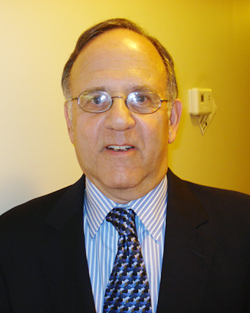
Present Positions
Psychiatrist, Geriatrics/Extended Care, Ralph H. Johnson V.A. Hospital, Charleston, South Carolina.
Psychiatrist, Private Practice, Charleston, South Carolina.
Bio-sketch
Dean Schuyler was born in New York City on September 15, 1942. Educated at the Bronx High School of Science and New York University, he attended NYU School of Medicine, and completed Residency in Psychiatry at the University of Pennsylvania in 1971.
Dr. Schuyler served in the U.S. Public Health Service at the National Institute of Mental Health in Washington, D.C .He received Board Certification in Psychiatry in 1974, and was re-certified in 2002. He has maintained a private practice of Adult Psychiatry from 1971-1997 in Rockville, Maryland; and from 2003-Present in Charleston, South Carolina.
He has taught psychiatric residents in cognitive therapy and depression at Georgetown University, Sheppard Pratt Hospital, and at the Medical University of South Carolina (MUSC). He worked at the Adult Primary Care Clinic at MUSC (1997-2003), and alongside Dr. Frank Brescia in Oncology at MUSC (2000-2003). In September, 2007, he was hired to join an outpatient oncology practice where he worked for 18 months with 400 cancer patients helping them to adjust to their disease.
In March, 2010, he was hired by the Department of Medicine at the Charleston V.A. Hospital to join a Palliative Care Team. He continues to work there 12 hours a week, treating geriatric patients from a cognitive therapy viewpoint ,and teaching medical residents about the end of life. He is the author of 89 publications, recently publishing six articles each year in a space he is responsible for called “Psychotherapy Casebook” in the Primary Care Journal for CNS Disorders. Dr. Schuyler has made over 300 presentations, including lectures, seminars and workshops, from 1971-present.
He has lived in Charleston, S.C. with his wife Terry since September, 1997. They have two daughters, Rachel and Amy, who each live in the New Jersey and New York areas.
エンド・オブ・ライフにおける認知療法
要約
私は2010年から緩和ケアチームに参加するためCharleston退役軍人行政病院に勤務している。
私は精神科レジデントとして、1969年Pennsylvania大学Dr. Tim Beckより精神科治療法の認知療法を学んだ。研修の最終年度に著明な精神科医であるDr. Martin Seligmanに指導を受けた。またCharlestonのMUSC(サウスカロライナ大学)での勤務開始後すぐにDr. Frank Bresciaとともに緩和ケアを行う事を依頼された。どちらの師も私に重要な影響を与えてくれた。
今日、私はまず精神科的治療法である認知療法についてお話する。米国人がん患者はがんについて医師と話したいという傾向がある。そこで私は認知療法モデルをがん患者に当てはめ、その苦悩を救う事を試みた。その経験をもとに私は4冊の本(認知療法と抑うつに関して)と90編もの論文を発表した。
私が退役軍人行政病院緩和ケアチームに参加することを依頼されてからは、認知療法をさまざまな疾患のend of lifeに当てはめる事で患者のサポートを行うことは意味の有る事だと感じた。
認知療法はpsycho-educationalなものであり、患者の現在おかれた状況の意味を、適切に認識することを手助けするものである。もし、その意味が苦悩と強く結びついているのなら、セラピストの助けを借りて患者は苦悩から解放される代替策を見いだしうる。
これは内観法ではなく、過去の意識に遡る手技でもない、また無意識の認識でもない。
認知療法はend of lifeにおかれた患者に、今の状況が、彼あるいは彼女自身のために用意されたstageであるとしっかりと認識させるよう援助する。
私は緩和ケアの役割に言及しlife stageの概念を説明する。また医師と患者の効果的なコミュニケーションやその相互関係を確立することの重要性を話す。End of lifeのステージの患者で一般的にみうけられる問題についても概説する。
さらに認知療法を取り入れる事の長所やその有用な手法についても述べる。
最期に認知療法が有用であった具体例を提示する。
(邦訳:平山泰生)










